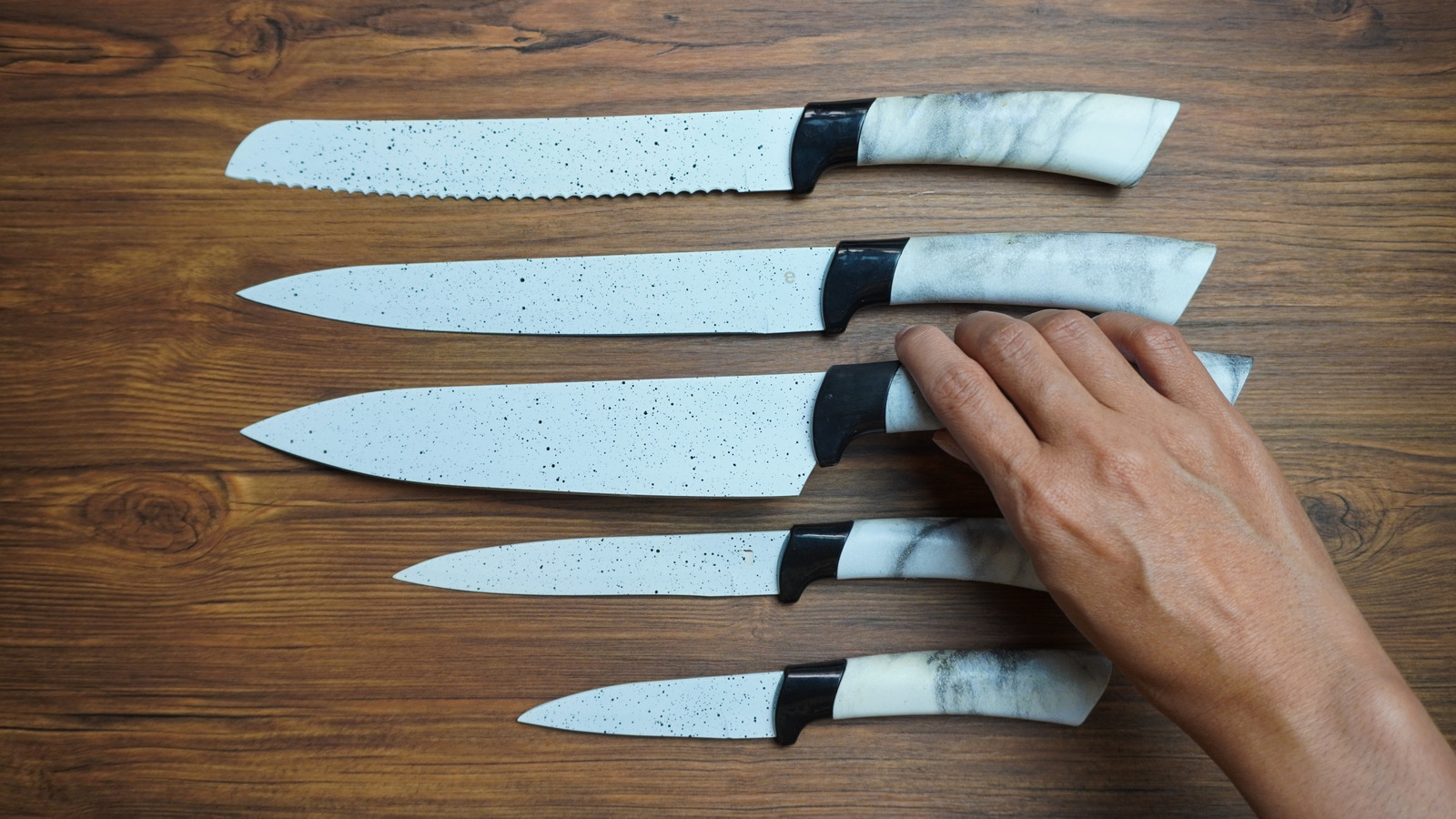
"No matter what level you consider your cooking to be, if you're getting into the kitchen, you've got to get really familiar with holding and using a kitchen knife. But, if you're first starting out, here are some words to the wise: steer clear of carbon steel knives. Despite being extremely popular among professional chefs, there's a good reason why carbon steel knives aren't exactly beginner-friendly."
"The bare metal on carbon steel knives can rust very easily, and a lot quicker, than you'd think. If you don't clean them immediately after cutting something acidic like a tomato, you'll find rust forming on the blade in just a couple of hours. Since these knives need a lot of baby sitting, we highly recommend sticking with an inexpensive set of stainless steel knives if you're just starting out."
"Stainless steel knives tend to resist rust and corrosion very well, since the iron is alloyed with a bit of chromium. Simply give them a fast rinse after use and wipe them down with a dry towel, and you can put them back in your knife holder without a single worry. It's stressful enough to learn basic knife skills without getting hurt - you don't need the additional pressure of worrying about them turning into a rusty mess as well!"
Carbon steel knives rust easily and can develop rust within hours after contact with acidic foods like tomatoes. These blades require immediate washing and thorough drying after every use and benefit from being stored in a cool, dry place to limit corrosion. Stainless steel knives resist rust and corrosion because iron is alloyed with chromium, making them lower-maintenance for beginners. A quick rinse and drying before returning knives to holders prevents rust without extensive care. Building a consistent knife-care routine is essential for carbon-steel owners, including prompt cleaning, drying, and proper storage to minimize rust risk.
Read at Tasting Table
Unable to calculate read time
Collection
[
|
...
]